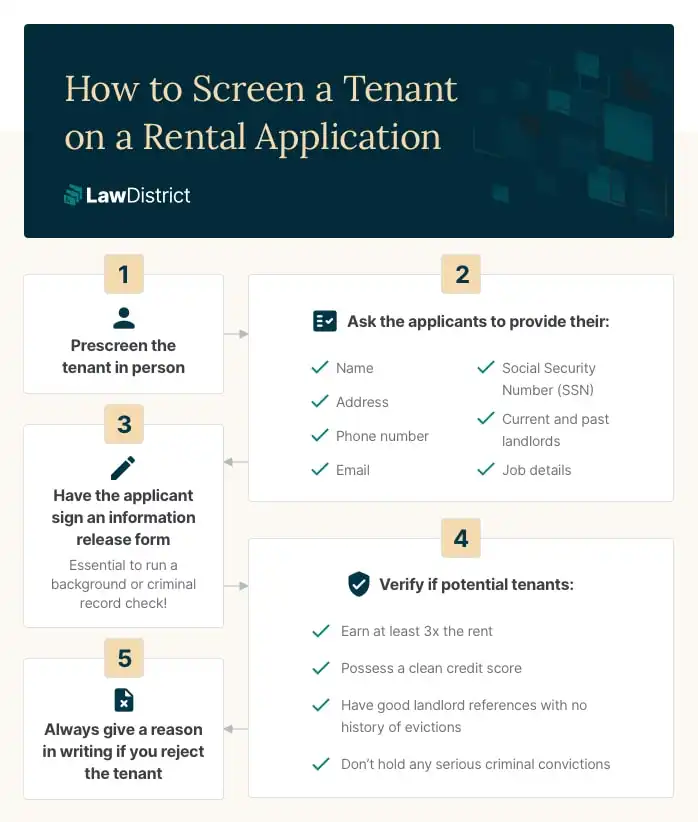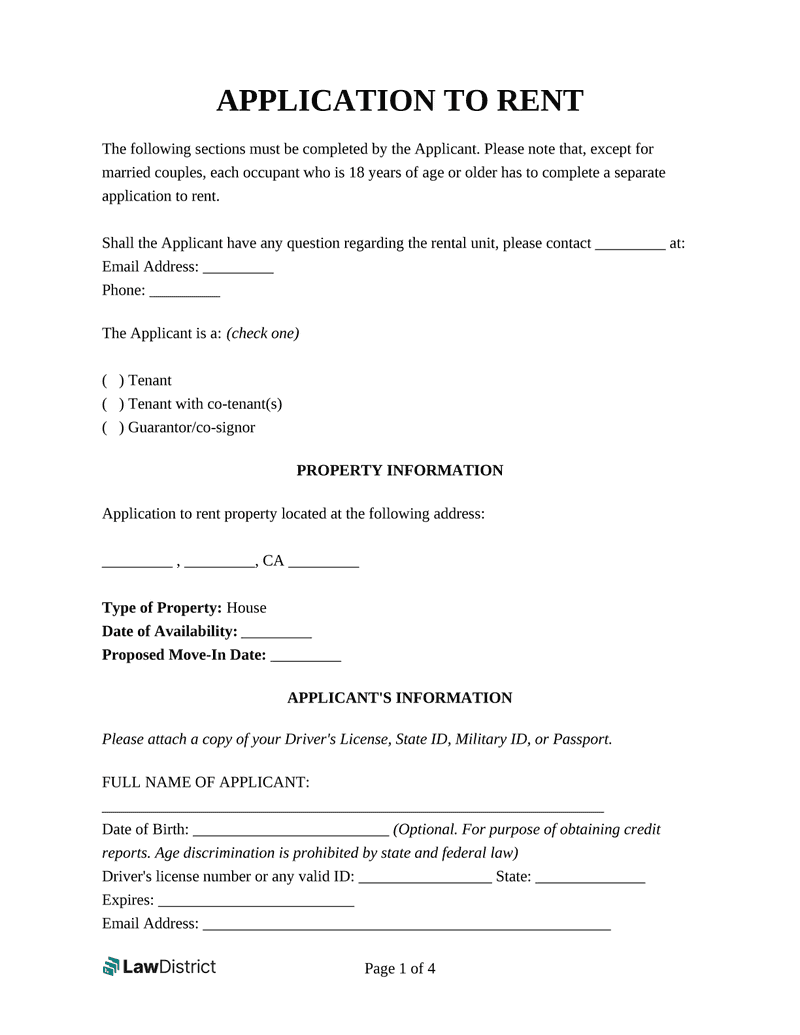Rental application forms can ask potential tenants for many different items of information. This helps improve transparency for the landlord before signing a lease.
However, all the data gathered must follow appropriate fair housing laws. As a result, there are many things you cannot require a tenant to answer.
Read on below to find out more about the information that you can request from a tenant you wish to screen.
Basic Rental Application Information
Tenants can be requested to provide some basic information about themselves on the rental application. This is gathered to allow the landlord to complete any relevant background or credit checks on the applicant.
This usually requires the tenant to provide the following information:
- Full name
- Email address
- Phone number
- Emergency contact information
Rental History
In order to establish if the tenant can be trusted to follow the lease, the landlord can ask them to provide some data on their recent rental history. This enables them to find out if the applicant has a record of lease violations or evictions.
The landlord can request the following details from the tenant to assess this:
- Their current address
- Move-in and move-out dates of previous residences
- Contact information for former landlords
- The reasons for leaving previous homes
Employment History and Income
One of the most important questions a rental application form seeks to answer is regarding the applicant’s income. This is often key to understanding if the tenant can afford to live on the premises.
In this section, the tenant will be asked to provide the following information about their employment:
- Employer’s name and address
- Supervisor’s name and address
- Job title
- Type of employment contract (Full-time, part-time, temporary, etc)
- Duration of employment
- Gross monthly income
- Any other sources of income
The landlord may ask the tenant for permission to contact their employer. Overall, however, landlords will normally wish to see that the applicant should have a gross salary of at least 3 times the required rental payment.
Credit History
Another significant part of the rental application is the tenant’s credit history. This information isn’t always requested (often the income statement provides enough data) but it can prove useful to ensure the tenant will honor their financial obligations to you.
To carry out a credit check, the landlord will often require the tenant to pay a fee to cover the costs of the screening. As this involves sensitive data, the tenant will also have to give their consent before the check can be done.
When assessing the credit history of a tenant, the landlord will often request the following information:
- Credit and banking statements
- Bank accounts the applicant keeps money in
- Letters from former landlords confirming the tenant’s payment history
- Social Security and Individual Tax Payer Identification Number (ITIN)
- Consent to a credit check
Personal References
The landlord can also request that a tenant provides personal references. These can be useful to establish their character and behavior, which is especially helpful if they will be living in a multi-residency unit or in a room in a home of multiple occupancy.
The reference can be sourced from any of the following parties:
Background Check
In addition to a credit check, the landlord can also ask for a background check. This is ordinarily done to gain a more comprehensive picture of the applicant.
You may be wondering, how does a background check work?
It can also allow the landlord to find out:
- Whether the tenant has a criminal record
- If the tenant has been declared bankrupt
- If the tenant has been evicted before
Like a credit check, this can only be done with the tenant’s permission. This may also replace other sections that request the same details from the applicant, in order to avoid duplicating information.
Disclosure
Last but not least, the rental application must include an important legal disclosure, that the tenant must agree to. This must adequately follow housing and credit report laws in order for your final document to be valid and enforceable.


